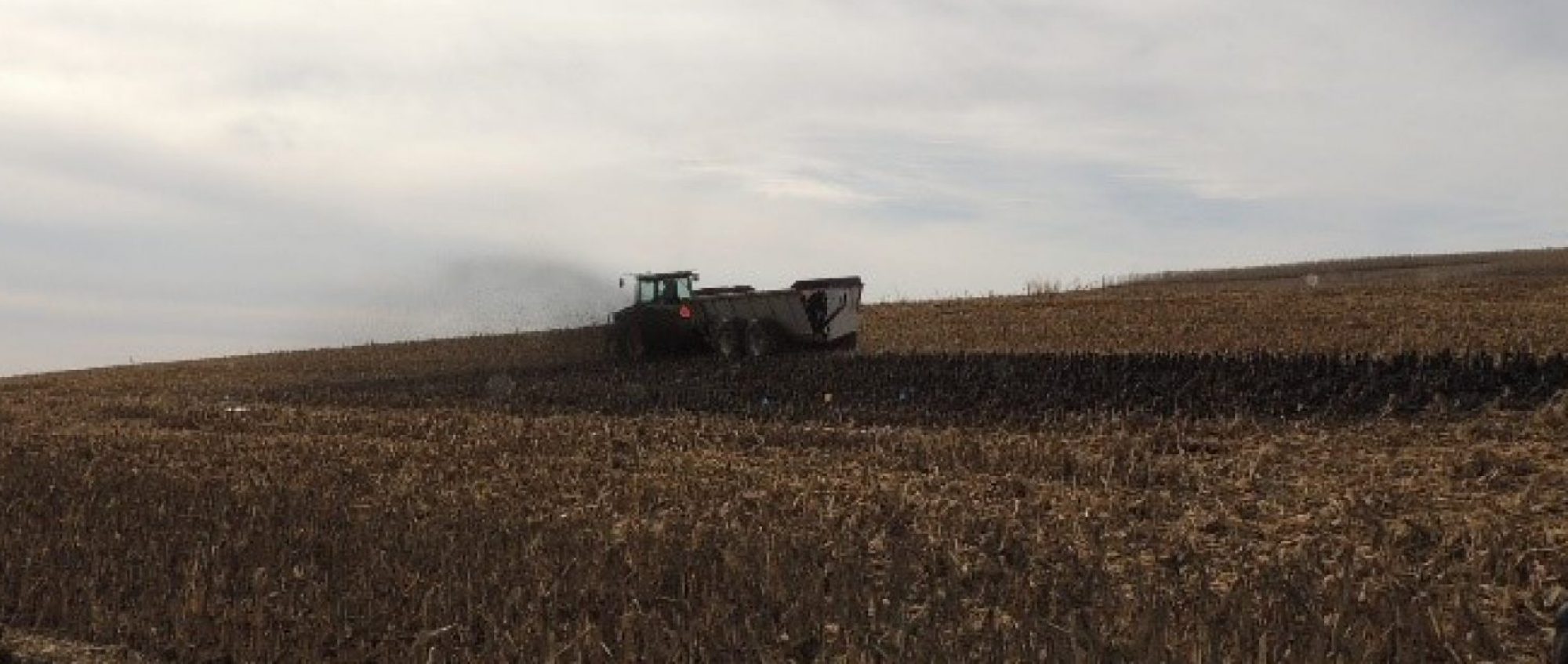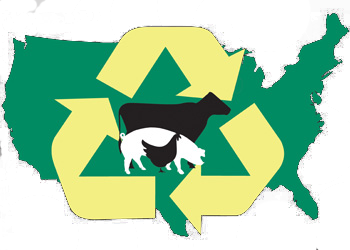This webinar presents four different current runoff advisory tools: the Runoff Risk Advisory Forecast (WI), Application Risk Management System (WA), Fertilizer Forecaster (PA), and the Saturated Area Forecast Tool (VA). This presentation was originally broadcast on June 16, 2017. More… Continue reading “The Use of Runoff Risk Advisory Tools for Water Quality Protection”
On-Farm Nutrient Management Research: Replacing Commercial Sidedress Nitrogen with Liquid Livestock Manure on Emerged Corn
This webinar highlights the on-farm research that has been done and is being planned in the state of Ohio to capitalize on the opportunity to apply in-season nutrients with manure application. This presentation was originally broadcast on May 19, 2017. More… Continue reading “On-Farm Nutrient Management Research: Replacing Commercial Sidedress Nitrogen with Liquid Livestock Manure on Emerged Corn”
Manure and Cover Crops
In the Manure and Cover Crops roundtable, our goal was to discover whether manure and cover crops have complementary benefits related to soil quality. We debated if certain fields will produce more complementary benefits than others and whether timing of application and sampling affects these benefits. Finally, we’ll discussed whether we can derive an economic value for manure beyond its nutrient value. Field experiences and observations related to the value of manure as well as what farmers still need related to soil building with manure were discussed. This dialogue was the final of a four part series discussing the current state of our knowledge relative to manure’s impact on soil health.
If you have difficulties please see our webcast troubleshooting page. If you need to download a copy of a segment, submit a request.
Tim Harrigan, Michigan State University
Barry Fisher, NRCS Regional Soil Health Coordinator
Heidi Johnson, University of Wisconsin
Sarah Carlson, Practical Farmers of Iowa
Discussion
Other Manure and Soil Health (MaSH) Information
Manure and Soil Erosion, Runoff, and Losses
In the Manure and Soil Erosion, Runoff, and Losses roundtable, our goal was to discover the influence of manure on soil and runoff. We discussed if certain fields will produce more environmental benefits than others and whether timing of application affects these benefits. Finally, we debated whether we can derive an economic and environmental value for manure beyond its nutrient value, due to improved moisture retention and decreased erosion. Field experiences and observations related to the value of manure as well as what farmers still need related to soil building with manure were reviewed. This dialogue was the third in a four part series discussing the current state of our knowledge relative to manure’s impact on soil health.
If you have difficulties please see our webcast troubleshooting page. If you need to download a copy of a segment, submit a request.
Nathan Nelson, Kansas State University
John Gilley, USDA Agricultural Research Service
Mike Kucera, NRCS National Soil Survey Center
Andy Scholting, Nutrient Advisors
Discussion
Other Manure and Soil Health (MaSH) Information
Manure and Soil Health Testing
In the Manure and Soil Health Testing roundtable, our goal was to discover what current soil health tests help to quantify manure impacts on soil characteristics, thus determining which soil test is the best indicator and best value. We debated which types of fields might benefit most from manure used to improve soil health and procedures for collecting samples for soil health tests that would best recognize results from use of manure. Field experiences and observations related to the value of manure as well as what farmers still need related to soil building with manure were discussed. This dialogue was the first of a four part series discussing the current state of our knowledge relative to manure’s impact on soil health.
If you have difficulties please see our webcast troubleshooting page. If you need to download a copy of a segment, submit a request.
Bianca Moebius-Clune, NRCS Soil Health Division
Russ Dresbach and Donna Brandt, Missouri Soil Health Assessment Center
Geoff Ruth, Nebraska Crop Farmer
Discussion
Other Manure and Soil Health (MaSH) Information
Manure and Soil Biology
In the Manure and Soil Biology roundtable, our goal was to discover the influence of manure, both positive and negative, on soil biology. We discussed if certain fields will produce more soil biology benefits than others and whether timing of application affects these benefits. Finally, we debated whether we can derive an economic value for manure beyond its nutrient value. Field experiences and observations related to the value of manure as well as what farmers still need related to soil building with manure were reviewed. This dialogue was the second in a four part series discussing the current state of our knowledge relative to manure’s impact on soil health.
If you have difficulties please see our webcast troubleshooting page. If you need to download a copy of a segment, submit a request.
Rhae Drijber, University of Nebraska – Lincoln
Michelle Soupir, Iowa State University
Jonathan Lundgren, Blue Dasher Farms
Discussion
Other Manure and Soil Health (MaSH) Information
Planning for Climate Resiliency
Resiliency to weather risk is, on one hand, a topic that farmers and ranchers are already familiar with, but now climate change is adding new uncertainties that make it difficult to know the best practices for the future. Scenario planning, discussed in this webinar, is a method of risk assessment. This presentation was originally broadcast on January 20, 2017. More… Continue reading “Planning for Climate Resiliency”
Manure and Soil Health (MaSH) Project
During this webinar, speakers introduce new MaSH programs and will present ideas on how research and educational programs can be shared across state borders. This presentation was originally broadcast on October 28, 2016. More… Continue reading “Manure and Soil Health (MaSH) Project”
Drone Use in Animal Agriculture
This webcast contains an overview of the capabilities of drones, the potential for drone use in animal agriculture, and the current FAA regulations. This presentation was originally broadcast on June 17, 2016. More… Continue reading “Drone Use in Animal Agriculture”
Implementation and Experiences of NAQSAT Around the US
Recently, NAQSAT was incorporated in the USDA Natural Resource Conservation Service guidance to assist in resource concern identification and conservation planning efforts. This presentation was originally broadcast on May 20, 2016. More… Continue reading “Implementation and Experiences of NAQSAT Around the US”


